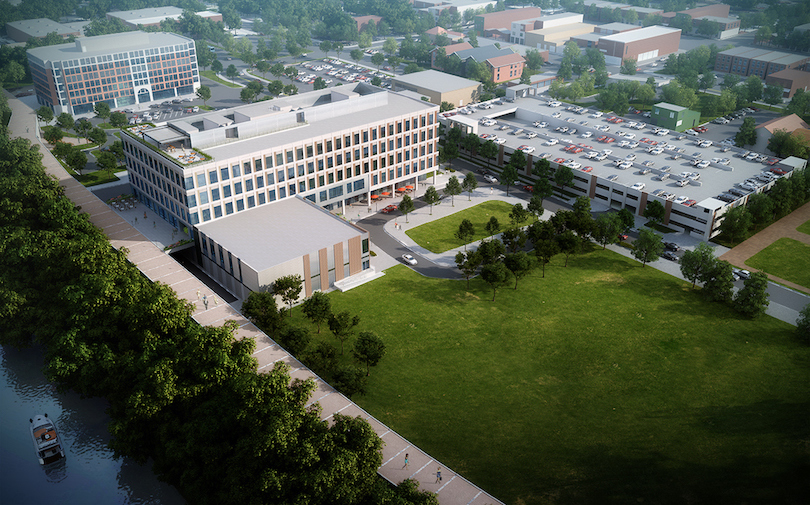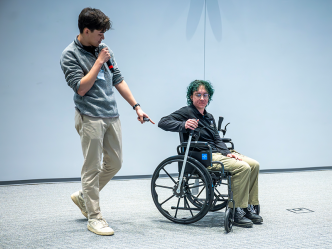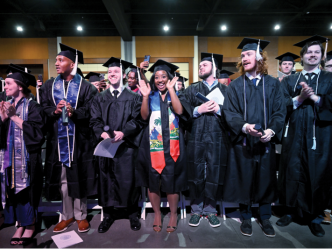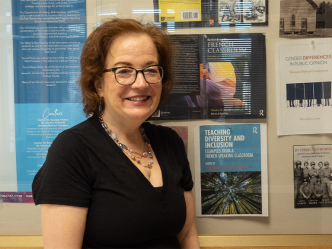The state of Georgia will enter bold new territory in cybersecurity research and workforce development with the opening of the Georgia Cyber Center on July 10.
Housed at Augusta University’s Riverfront Campus, the $100 million facility is the single largest investment in a cyber facility by a state government to date and home to a unique public/private collaboration among academia, state and federal government, law enforcement, the U.S. Army and the private sector. Spread across two buildings, the 332,000 square-foot space features a cutting-edge cyber range, a secure briefing area and an incubator and accelerator to foster innovation and entrepreneurship.
Cybersecurity experts from Georgia’s three National Centers of Academic Excellence in Cyber Defense (CAE-CD) designated research universities—Augusta University, University of Georgia and Georgia Tech—are available for interviews to discuss the future of cybersecurity research and innovation in the state.
Dr. Michael Nowatkowski, Augusta University
Medical Device Security, IoT hardware
Story Ideas: “The dangers of an ‘accidental’ hack,” “’Pivoting’ inside hospital networks”
Bio: Nowatkowski, an associate professor of Information Security in the School of Computer and Cyber Sciences, previously served as a U.S. Army Cyber Operations Specialist. He maintains a joint appointment with West Point to conduct military research.
Dr. John Heslen, Augusta University
Cybersecurity policy/strategy, the history of cyber warfare and espionage
Story Ideas: “Defining “Cyberwar,” “Neurocognitive hacking” to create Fake News,” “Which Cyber Adversaries should the U.S. be watching”
Bio: Heslen, an assistant professor of political science and cybersecurity policy, holds a joint appointment in the Katherine Reese Pamplin College of Arts, Humanities, and Social Sciences and the School of Computer and Cyber Sciences. He previously spent close to two decades working as a member of the intelligence community in the United States Airforce.
Dr. John Krautheim, Augusta University
Cyber-physical systems security, malware analysis and reverse engineering
Story Ideas: “Analyzing malware strains,” “What cybersecurity can learn from medicine”
Bio: Krautheim, an assistant professor of cybersecurity in the School of Computer and Cyber Sciences, previously served as Chief Cloud Security Architect for the United States Department of Defense in Fort Meade, Maryland.
Dr. Kang Li, University of Georgia
Computer network and operating systems, system issues related to data security and privacy, detecting bugs in virtualization and cloud platform system software, DNS security and defenses against network abuses (denial-of-service attacks, phishing, spam)
Story Ideas: “Writing secure code to preempt hackers,” “New defenses against hackers’ most commonly used tools”
Bio: Li is a professor of computer science and director of the Institute for Cybersecurity and Privacy.
Dr. Roberto Perdisci, University of Georgia
Web security, automating the analysis of security incidents, defending networks from malware
Story Ideas: “Using machine learning to automate analysis of network security incidents,” “Anticipating cyber criminals’ tactics”
Bio: Perdisci is an associate professor of computer science, a founding member of the Institute for Cybersecurity and Privacy and a faculty member in the Institute for Artificial Intelligence. He combines systems research with machine learning and large-scale data mining methods to solve challenging computer and network security problems.
Dr. Wenke Lee, Georgia Tech
Systems and network security, botnet detection and attribution, malware analysis, virtual machine monitoring, mobile systems security, detection and mitigation of information manipulation on the Internet
Story Ideas: “Spotting botnets and tracking their operators,” “Securing mobile systems,” “How to mitigate information manipulation on the internet”
Bio: Lee serves as co-executive director of the Institute for Information Security & Privacy and is responsible for continuing international leadership in cybersecurity research and education. Lee is also the John P. Imlay, Jr., Chair of Software and professor of computer science in the College of Computing.
Dr. Michael Farrell, Georgia Tech
Guiding research in the fields of cyber, information security, risk, and privacy, research strategy
Story Ideas: “Applying interdisciplinary research to solve tech and policy problems,” “Research strategies in the fields of cyber, information security, risk and privacy”
Bio: Farrell serves co-executive director of the Institute for Information Security & Privacy. In this role, he guides research across seven units engaged in cyber, information security, risk, and privacy across the Georgia Tech ecosystem. Farrell is also chief strategist at the Georgia Tech Research Institute, the nonprofit, applied research division that employs more than 2,000 people supporting eight laboratories in more than 20 locations around the country.
Calvin C. Rhodes, Georgia Technology Authority
Bio: Rhodes has served as Georgia CIO and Executive Director of the Georgia Technology Authority since 2011. He leads GTA’s oversight of construction and partner coordination of the Georgia Cyber Center in Augusta. He also leads the Georgia Enterprise Technology Services program, a public/private partnership providing shared technology services to state agencies, and a related initiative to make it easier for state agencies to benefit from IT marketplace changes. His other responsibilities include oversight of statewide IT policies and standards. Rhodes has served on the Board of the National Association of State CIOs and several of the association’s workgroups.
Stanton S. Gatewood, Georgia Technology Authority
Bio: Gatewood is Chief Information Security Officer for the state of Georgia. He leads the Georgia Technology Authority’s Office of Information Security, which unifies information security responsibilities for the state’s IT enterprise, the GETS program, and GTA. He has more than 33 years of experience in cyber security programs for the U.S. military, state and federal governments, higher education, and global corporations. Gatewood is a distinguished fellow at the Ponemon Institute, the widely known research center dedicated to privacy, data protection, and information security policy.
Schedule an Interview
To schedule an interview with one of these experts, contact:
Augusta University: Nick Garrett, 706-993-6411, ngarret1@augusta.edu
Georgia Tech: Laura Diamond, 404-894-6016, laura.diamond@comm.gatech.edu
University of Georgia: James Hataway, 706-542-6927, jhataway@uga.edu
Georgia Technology Authority: Paula Calhoun, 404-463-2347, paula.calhoun@gta.ga.gov
 Augusta University
Augusta University




